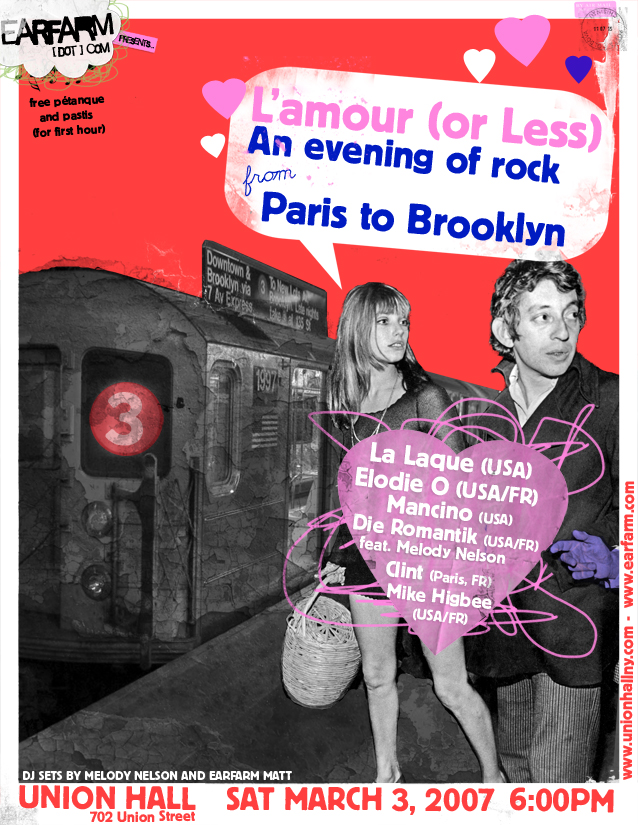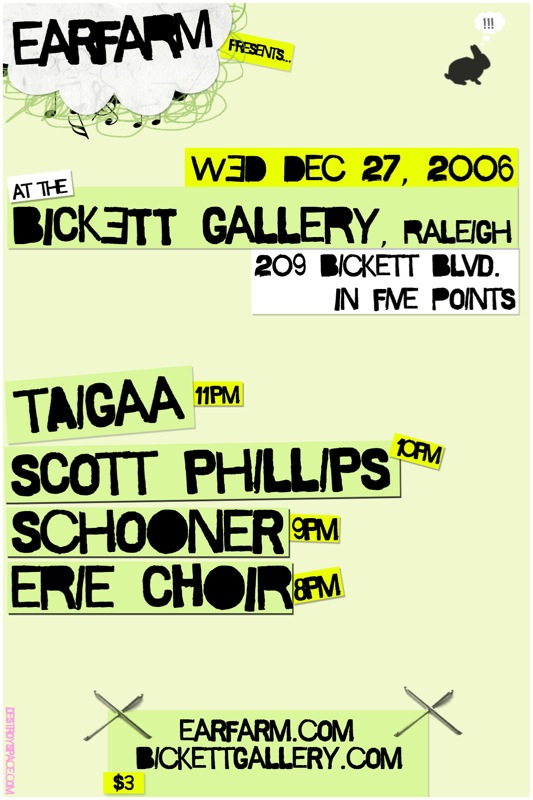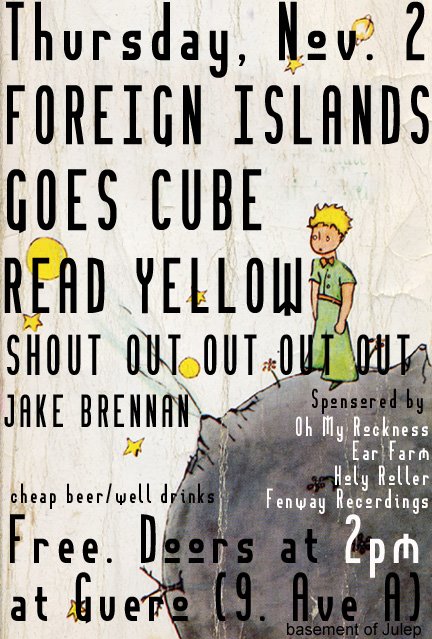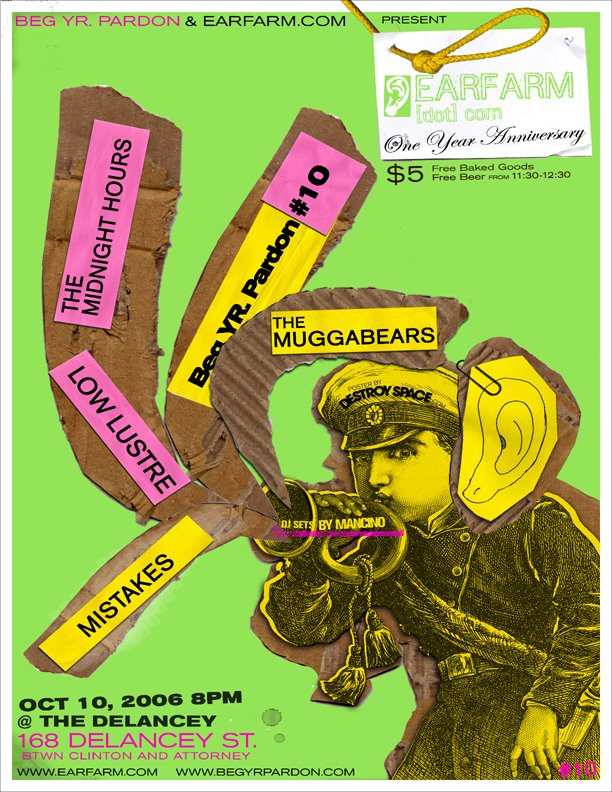 “Yes, Anastasia” by Tori Amos which clocks in at 9:33
“Yes, Anastasia” by Tori Amos which clocks in at 9:33
From time to time EAR FARM enjoys featuring guest posts in the long-running 8+ feature. To that end, I'd like to once again invite any and all of you to get in touch if you're interested in writing your own 8+ to be featured here (see previous 8+ guest posts HERE). The only guidelines: you must write about a song longer than eight minutes and the song you're writing about can not be a recording of a live performance. Other than that, it's a wide open format where anything goes.
Due to my being out of town for the past week-plus in Las Vegas (for work), EAR FARM featured a guest 8+ post last week and we've got another one lined up for today. Our guest author this week is a good friend of mine named Cathy. We first met back in middle school and became very close in high school, remaining friends to this day. In fact, many times I almost composed my own 8+ about her and this song, which would have been second-hand and incomplete. Thankfully she agreed to write something for us so that we'll get the proper version of her story. And hey, it just so happens to be a perfect time to feature a Tori Amos song here in EF's 8+ given that she's in town tonight to play the Theater at Madison Square Garden.
Tori Amos originally released “Yes, Anastasia” in 1994 as part of the Under the Pink album. I was 16 at the time, and this song, more than any other, confirmed my adolescent belief that she was writing her music just for me. She seemed to have a clearer understanding of my plight than my family, or even my friends. I was at the height of teenage misery, consumed with feeling self-conscious and insecure, but hadn’t figured out yet that most everyone I knew was feeling the same way. Somehow, Tori understood all of this, and I had sought refuge in her lyrics and the otherworldly quality of her songwriting. And then, as if to eliminate any doubt of her intentions, Tori contacted me cryptically (her usual style) via “Yes, Anastasia.” Not only was this song long enough that I was pretty sure most of her other, pseudo fans would dismiss it, but it was written about the source of my long-forgotten alter ego, Anastasia.*image of Anastasia Nikolaevna Romanova from HERE.
The song was inspired by what I had thought was a relatively obscure historical mystery, and one that I had had a strange obsession with as a child. My fixation began in a very unromantic way, via a television miniseries about Anna Anderson. In 1920 Anderson had washed up on the side of the Landwehr Canal in Berlin following a failed suicide attempt. Committed to a mental hospital, her identity unknown, she started claiming to be Grand Duchess Anastasia of Russia, the youngest daughter of Emperor Nicholas II. According to history, the Emperor and his family, including then 17-year old Anastasia, were executed by the Bolshevik secret police on July 17, 1918. According to Anna Anderson, she, Anastasia, had managed to survive the massacre and flee to safety. For nearly 70 years, until her death in 1984, Anderson continued to insist that she was Anastasia. Many believed her, including some who had known the Grand Duchess, while others thought she was a psychopath.
I was mesmerized by her story. The possibility that someone with such a common name as Anna Anderson might have really been a duchess captured my imagination. It wasn’t that I necessarily believed her, but I definitely related to the desire for a more romantic history. Let’s face it, things could be pretty unglamorous for a twelve-year old growing up in 1980s suburban America, jelly bracelets notwithstanding. I was desperate for proof that some other life was possible, and not yet knowing how to create it for myself, I was drawn to this woman who had assigned herself a royal past. What an elegant and envious solution! Thinking that if it worked for her, it could work for me, I decided that I, too, would adopt the name Anastasia. For a year or so, I was convinced that was my true and proper name. I practiced signing it with a royal flourish and daydreamed about my life at court … or as a movie star or a musician or an astronaut. Having adopted an exotic secret identity, I wasn’t about to be restricted to a single fantasy. My association with the name gave me license to imagine myself as anything I wanted to be.
I wasn’t delusional – I knew that I wasn’t really any of these things, not yet anyways. And I definitely didn’t let any adults in on my secret, having learned early on that outlandish flights of fancy were frowned upon in polite company. I, like many children, was consumed by my imagination, deeply affected by music and art, and transfixed by any book I could get my hands on. I lived in a space that was halfway between the “real” world and the realm of imagination, while the adults around me seemed firmly rooted in the mundane aspects of daily life. I remember being confused about why my own parents rarely listened to music. I asked my mother about this one day and she told me that when she was younger she had loved music, but as she became an adult and her responsibilities grew, she didn’t have time for it. It just didn’t seem work on her anymore. I was instinctively aware that creativity is marginalized in our culture – it felt like something that needed to be defended. I wanted permission to indulge myself in it, and Anastasia gave me that.
As it turned out, the historical mystery was not nearly as obscure as I had thought and Amos, captivated by the story, aimed to spread it further. Many of her songs (which she refers to as “the girls”) are inspired by specific characters, both historical and imagined (or sensed), with whom she feels a connection. “Yes, Anastasia” shifts between Anastasia’s memories (There’s something we left on the windowsill ...) and the pressure and scrutiny faced by Anderson to prove her claimed identity (Show me the ways to button up buttons/ That have forgotten they’re buttons/Well we can’t have that/Forgetting that). The music, too, alternates between sections that are whimsical and upbeat, like a children’s song, and others that feel violent and threatening. It isn’t clear whether Amos believes that Anna Anderson is Anastasia or not: the sadness for something lost and the dichotomy between memory/childhood and threats from outside are real for both of them.
Testing conducted after Anderson’s death indicated that she was probably not Anastasia, but it seems the two will always be linked in historical memory. If Anderson really was the Prussian factory worker that DNA evidence now suggests she was, what was it that drove her to immerse herself so completely in fantasy that Anastasia’s memories became her own? I’m reminded of Allen Ginsberg’s poem “Howl.” Ginsberg mourns the tragic fate that creative people seemed to be meeting in the face of an increasingly homogenized culture: “I saw the best minds of my generation, destroyed by madness, starving hysterical naked.” Many people, it seems, lose their creativity altogether, some suffer mental health problems, and a very few manage to channel it into art. “Yes, Anastasia” reminds me that we must choose and defend creativity daily, or our creative lives, our real selves, will disappear. The songs ends with Tori wailing, to me, a call to action:
“We’ll see how brave you are ... Yes, Anastasia.”
***
Note: It occurs to me that the real histories (whatever they are) of Anna Anderson and Anastasia Romonova get lost somewhere in all of these highly personal associations that have sprung up around them. The following books chronicle their lives. Anastasia: The Riddle of Anna Anderson, by Peter Kurth, presents the evidence in favor of Anderson’s claim. Robert K. Massey’s Nicholas and Alexandra profiles the court and family of Emperor Nicholas II, including young Anastasia.
Buy Under the Pink on Amazon/on iTunes.
EAR FARM's 8+ is a weekly feature that showcases songs longer than 8 minutes. In the recent past these songs were featured on EF's 8+:
Boduf Songs - “Bell for Harness”
8 Bold Souls - "Odyssey"
Artanker Convoy - "Open Up"
Dan Deacon - "Wham City"
Clan of Xymox - "A Day (Remix)"
Built to Spill - "Broken Chairs"
Spacemen 3 - "Big City (Everybody I Know Can Be Found Here)"
Pulp - "Seductive Barry"
To see a full list of every song featured in EAR FARM's 8+ click HERE.










3 comments:
yes! tori yes!!
This is a wonderful read. I'd love to say I had the same inventive fantasies when I was a girl and found out about the story of Anastasia, but I don't think I was creative enough! Also, surely my brother would have found me out and made fun of me for it - argh!
Thanks, I love the song (yes Tori!) and the post.
Made me go back and listen to that song again in a way I have never before. Thanks for the great morning read!
Post a Comment